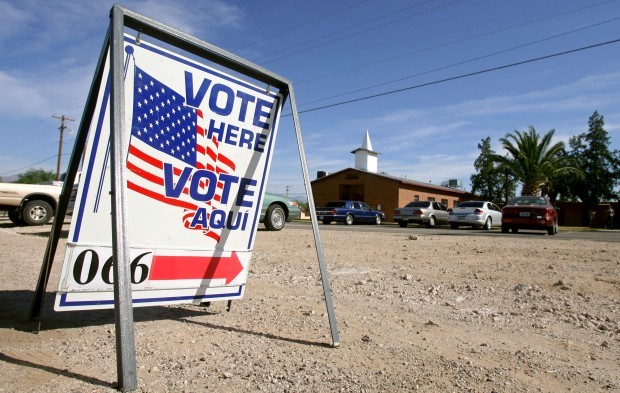PHOENIX — The head of the Arizona Republican Party claims there are at least 500,000 people registered to vote in the state who are dead or who have moved.
The party official, Gina Swoboda, wants a federal judge to order Democratic Secretary of State Adrian Fontes to fix the alleged problem under requirements of the National Voter Registration Act. She and two others involved in GOP politics also are asking the judge to order Fontes to “develop and implement additional reasonable and effective registration list-maintenance programs.’’
Fontes declined to comment on the lawsuit, which also was filed by Scot Mussi, president of the Republican-aligned Free Enterprise Club, and Steven Gaynor, who made an unsuccessful run as a Republican for secretary of state in 2018 and was briefly in the 2022 gubernatorial race before withdrawing.
The lawsuit claims 14 of 15 Arizona counties have voter registration rates that are “implausibly high.’’
Specifically, attorney Andrew Gould says there are more registered voters — both active and inactive — than there are residents 18 or older.
All the counties with the exception of Greenlee have registration rates between 80% and 99%, he said.
By contrast, he said, data from the U.S. Census Bureau puts the average figure nationally at 69.1%. Citing the same data, Gould said the expected registration rate for Arizona should be 69.9%.
“Based on even the most conservative data sources, Arizona has at least 500,000 registered voters on the voter rolls who should have otherwise been removed,’’ Gould said.
He said some of that is due to failing to remove those who have died from the rolls as required under the Voter Registration Act.
He said between December 2020 and the end of November 2022, about 143,278 Arizona citizens of voting age died. But Gould said only 108,103 were removed from the rolls during that period.
He said more than 750,000 confirmation notices were sent out to those listed on the registration rolls of Maricopa County alone to determine if they still lived at the location where they were registered. But Gould said fewer than 132,000 of those were removed and “there are no reported voter responses or removals by the secretary (of state) accounting for the status of the remaining 620,000 notice letters.’’
According to the lawsuit, Fontes has admitted to legislative leaders he has not implemented a program under the National Voter Registration Act to remove ineligible voters from the rolls.
For example, in a January report, Fontes said that there were 26,682 individuals whose names have been reported to his office as having obtained a driver’s license or equivalent ID in another state.
That report also requires him to say the number of notices of cancellation sent, the number placed in inactive status, and the number canceled. In each case, he reported, the “process is in development.’’
Ditto how he is dealing with 633 individuals who said on a jury questionnaire that they are not U.S. citizens.
Gould said his clients the right to go to federal court and sue because they have an interest in the voter rolls being as clean as possible.
“Because the secretary does not maintain accurate voter rolls, ineligible voters have an opportunity to vote in Arizona elections, risking the dilution of plaintiffs’ legitimate votes,’’ the lawsuit states.
But it does not provide any example of people casting ballots who did not have the right. And Gould said there’s a reason that known cases are small.
“Arizona is not well equipped to detect fraud,’’ he told the court.
“For example, Arizona has no system in place to detect when people vote in multiple states,’’ Gould said. “While the Electronic Registration Information Center can reveal whether votes have moved out of state, 50% of states do not participate in that voluntary program.’’
What Gould did not say is that it has been Republican-controlled states that have withdrawn from ERIC amid concerns about privacy and confidentiality of voter information.
Gould told the court, “Arizona’s inaccurate rolls undermine plaintiffs’ confidence in the integrity of Arizona elections, which also burdens their right to vote.”
No date has been set for a hearing before U.S. District Court Judge Eileen Willett.
Get your morning recap of today's local news and read the full stories here: tucne.ws/morning





